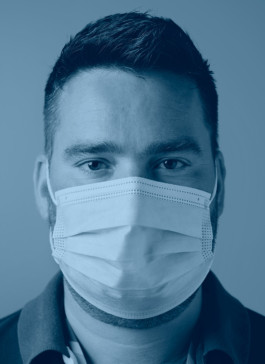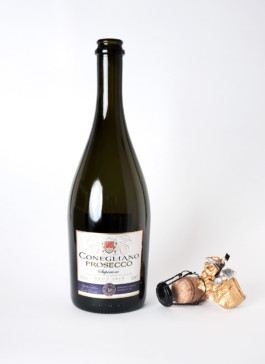Ben: “I think my favourite sound is probably silence. I really like quiet”


listen:
Content warning; contains references to mental illness and suicide
Photography: Lottie Davies
Audio Producer: Melissa Viney
Music: The Storm by Emily Maguire
read:
When people think of a nurse, they tend to think of the nurse on the ward that does the standard jobs that everyone thinks about. But if you ask people what a learning disability nurse was, most people wouldn’t have a clue.
And the jobs are so, so varied. So for me, it’s about working within a hospital to make sure that people that are using hospital services, can access them the same way that anybody else can. And we make all the adjustments that we need to make so they can get what they need.
My name is Ben, and I’m an Acute Liaison Nurse for people with learning disabilities, in a hospital.
The great thing about my job is that no day is the same, because no different patient is the same. So we might have a patient that needs to have a blood test. And to have that blood test, we might have to put a month of work into it, to try and prepare them for it, so they can accept when the person comes to take the blood; they’re not too frightened by it. So it might be regular visits to meet people, to experience the environment. And then hopefully – not always – you’ll get the blood test done. So that’s one of the things you do.
Covid has been very challenging in many ways for the hospital in general, and definitely for me and my patients. I think one of the significant things was the build-up to it. And there was this general fear of this dark cloud that’s looming. And we didn’t know what to expect. And it was one of those things where nobody really said they were worried about it or scared of it. But you could tell that everyone did have that anxiety around it. And we just sort of got on with the job. But we all knew that everyone was worried about what was going to happen.
My other big worry in the build-up to it was knowing that a lot of my… that a lot of people with learning disabilities die from respiratory related conditions, and Covid is respiratory-related. So we knew it was going to be a really vulnerable group.
When we were in the peak of Coronavirus, although we didn’t get the huge numbers of people that we feared we were going to get, when we did get someone it often posed lots and lots of significant challenges. So we could have someone admitted that in the past has needed two months’ worth of interventions to try and get them to be able to have an ECG or X-ray done.
But now we’ve got this person in hospital, and all those friendly staff that they’d seen before are now suddenly wearing lots of PPE. And they look quite frightening with their visors and their goggles and their masks and their gloves and aprons. So, instantly, they’ve been thrown into a situation where they don’t know the environment, they don’t know the people, the people that they do meet look frightening because of what they’re wearing. On top of that, they’re not feeling very well. So we’ve got a situation then where people are saying ‘We need to get their blood pressure, we need to get a blood test, we need to do all these different things’, and in my head, I’m just thinking, ‘How on earth are we going to do that, when it’s taken me two months to get this person to have an X-ray’. So in many ways we just hit lots and lots of walls. And for the patients – it was really, really difficult. So it was people having blood tests, and they were frightened having them. Whereas we’ve tried in the past to do everything we can to make it a positive experience, it almost became a task that had to be done for this person to be kept alive.
So we’d have people that needed to have oxygen therapy. Many other people in that situation would have the big NIV masks on for their symptoms, but my patient might not be able to have the NIV mask. So we’re already using a therapy that’s not as good as other people would have, because the patient can’t tolerate it. So we might just use a standard oxygen mask. I had people in hospital where I was sat with them for hours, trying to get them to keep the oxygen mask on.
I had one situation with a patient where I was sat with him for a long time trying to get this person to accept the oxygen. And we’d had conversations with the family and conversations with the clinical team, and we decided that actually we’re not going to keep trying to keep this mask on this person because he was getting so distressed. And we knew that he wasn’t going to survive. So that was a really challenging day. I spent quite a long time with him. And then left him knowing that when I got back the next day, he probably wouldn’t be alive, or there’s a strong chance he wouldn’t be alive.
There was the trip to the office to get my things before going home to go through the showering routine that we had to do when we’d finished work. So I was walking to my car, and it was always a very long walk to my car in those days because there was lots of things on your mind and I got in the car and started driving home. And within five minutes, I’ve stumbled across and drove past this group of women in their 30s – there was about six of them – just sat on the grass drinking Prosecco. And I’d just left that person, thinking, ‘I don’t think you’re going to survive’. And all people have been asked to do is stay at home. And we had a big group of people just sat on the grass drinking Prosecco. And I don’t think I’ve ever been so angry in my whole life. And it took everything to not stop the car and get out and just lose my temper and shout at these people.
People say about an emotional roller coaster. It absolutely was. So I’d gone from worrying about this person, to accepting and being really sad that they probably weren’t going to survive, to then driving past a group of people, and they were having a good time. But actually, it was because of people having a good time that my patient was in hospital and then died. And I don’t think people realise that that’s what happens. It just takes one person to take the virus home to somebody else, and they pass it on to somebody else. And then my patient gets it.
I decided over Covid that my biggest lesson of Covid is that I don’t like people as a rule. Everywhere that we go, I walk past people and they do something that I don’t like. So it seems to be nearly every interaction I have with people now, out of work and out of my home life. I just don’t like them. They’re either in the supermarket getting too close to or they’ve got their mask on the wrong way round. Small things.
I obviously don’t hate all people, and that, there’s people that I think deserve my time and deserve my effort. And I’d never begrudge giving that to them.
I think my favourite sound is probably silence. I really like quiet. Maybe not absolute silence, but just sort of being sat in a park with birds quietly chirping, or being sat on the beach. I don’t want roaring waves and heavy noise. Just gentle, calm sounds. I think that’s my favourite sound. It’s not a sound I get to hear enough I don’t think. The idea of my favourite sound being somewhere quiet and peaceful and calm is a complete contradiction to where I work, where actually you rarely get any quiet. Wherever you go there’s some noise, there’s machines beeping, there’s ambulances blaring. There’s always some noise, even the corridors, there’s a lot of noise, footsteps. You never really get any quiet time.
I think that’s why during Covid I quite enjoyed just sitting in my car when I finished work. Before I had to go home, I just had five minutes in the car, with the door shut.
Just with my own thoughts and block everything else out.
An Empathy Museum project made with the support of NHS England and NHS Improvement, The Health Foundation, and Arts Council England